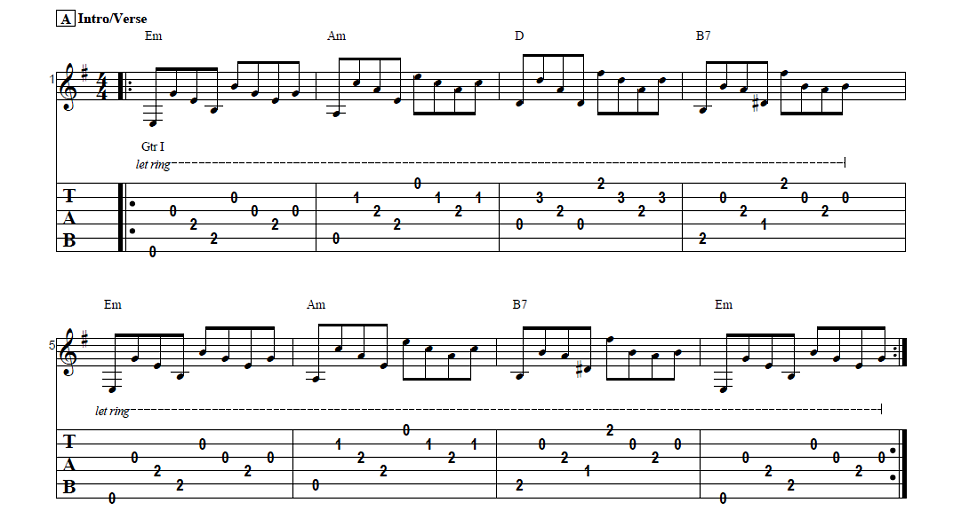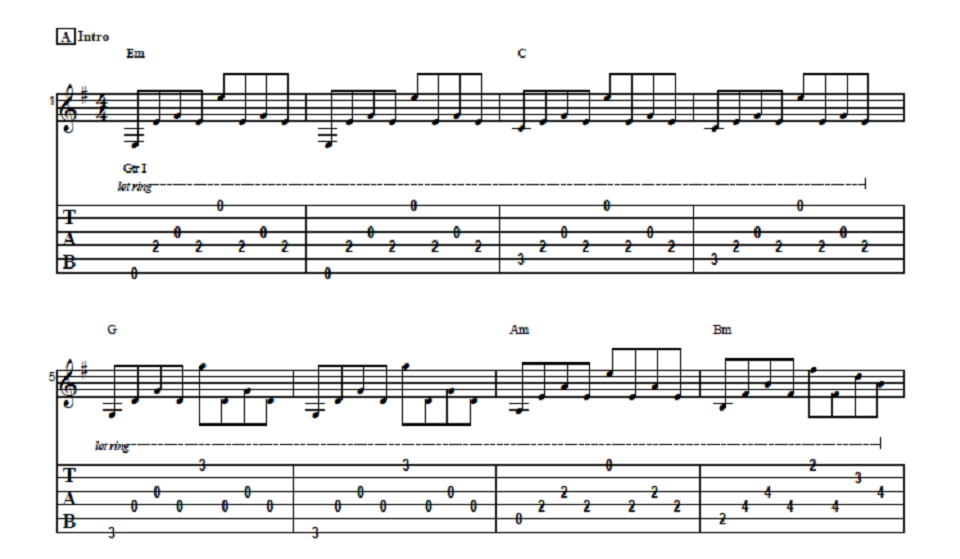Nothing sounds as good as the blues, especially when they’re played on an acoustic guitar. While most of the early blues players never wrote anything down or couldn’t read a note of music to save their lives, over the years their work has been dissected, analyzed, and transcribed, and arranged numerous times throughout the decades. Much of this early blues work was done on acoustic guitar and has been transcribed for generations of blues guitarists to learn to play themselves. For the most part, blues is an improvised art form, so a lot of the blues guitar tabs available are basically sketches containing a chord progression and a few licks. The note for note transcriptions are less important than the basic structure of a song and a guitar player’s own ear. There are, however, some artist specific acoustic blues tabs available, both commercially and on various websites online in addition to our complimentary detailed training guide for learning how to play blues on acoustic guitar.
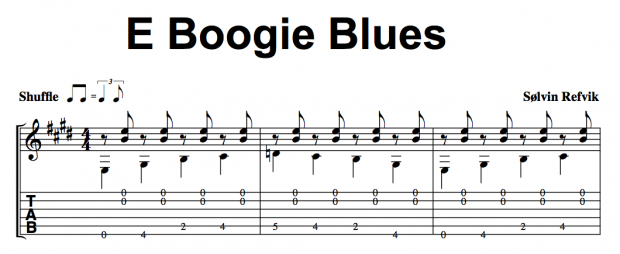
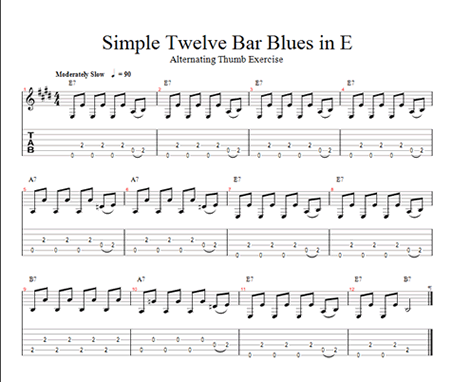
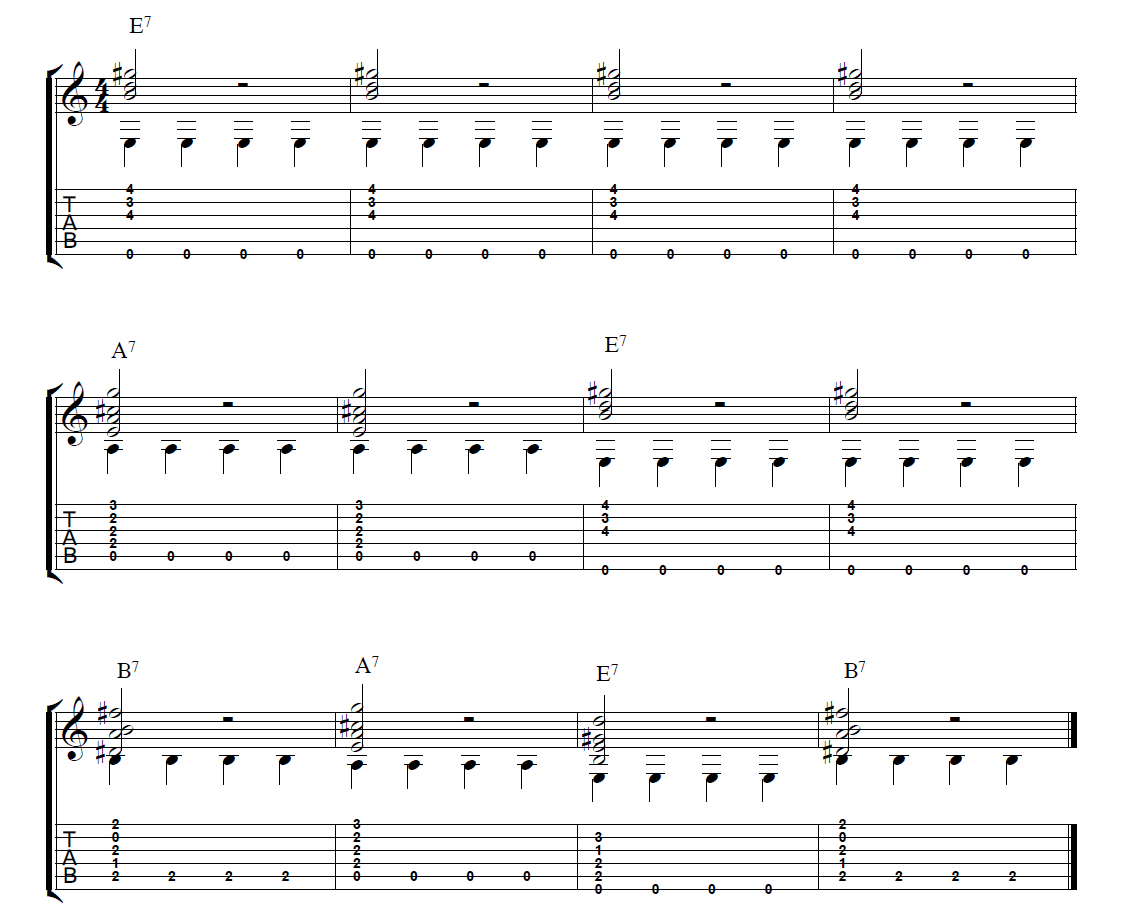
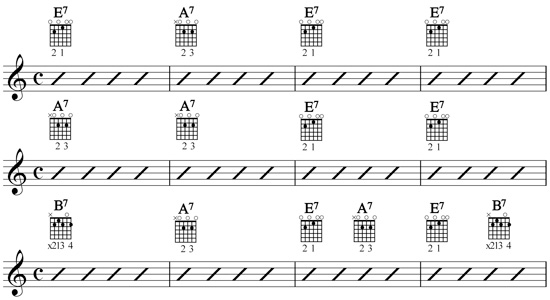
The first example below shows a pattern in E that can be played on an acoustic guitar or electric. It really doesn’t matter. The effect is the same. It’s a double stop pattern with a killer walking bass line on the lower two strings. The double stops sot of mimic horn stabs. This is an easy piece to play on acoustic and sounds great when you get the timing down.
The next two examples are exercises that works well on acoustic and make heavy use of the thumb and fingers. These are good to use when you want to work on playing with your fingers and not a pick.
Sometimes, rather than acoustic blues tabs specifically, blues charts will simply show a chord progression. Check out the example below. The actual notes to be played are improvised and often never played the same way twice. This is because a lot of blues players believe in spontaneous playing and many don’t even read music. This examples is by no means actual tablature, but it’s commonly found in use by blues guitarists.
Whether you use acoustic blues tabs or you’d rather play it by ear, it never hurts to at least have an understanding of how tablature works, just so you have the ability to read some of the acoustic guitar tabs that have been transcribed over the years. Who knows, you may even want to capture some of your ideas in concrete form. Learning how to read tab doesn’t make you any less of a blues player. It just makes you more well rounded.

